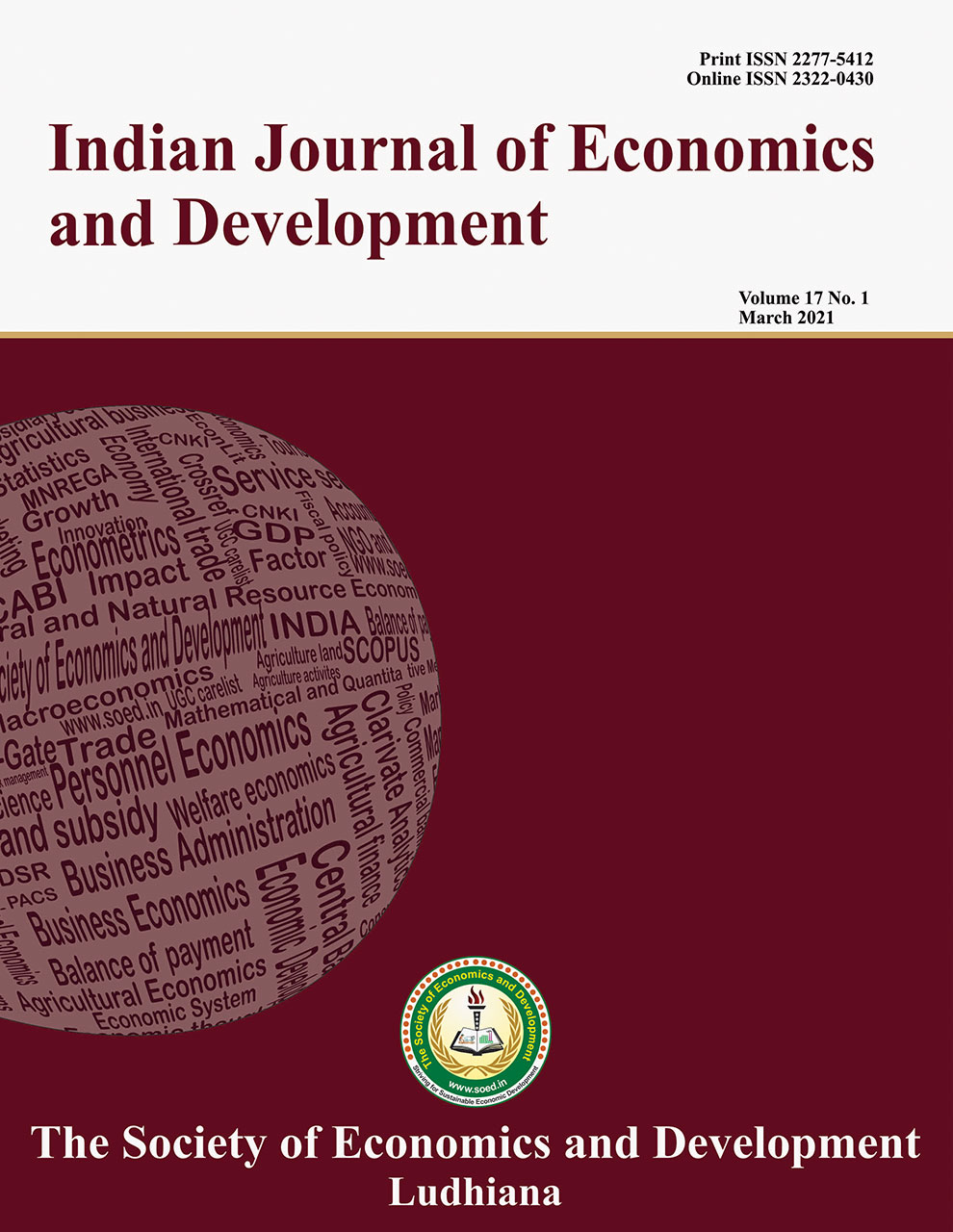Flow and Rental-Based Opportunity Cost of the Land under Walnut Cultivation in India

Price: ₹ 500
Author: Bakhtaver Hassan, Mahua Bhattacharjee, and Shabir A. Wani
Author Address: Visiting Faculty and Research Scholar, Professor, Amity School of Economics, Amity University, Noida-201313 (Uttar Pradesh), and Head of Department, Agricultural Economics and Horti-business Management, SKUAST-K Shalimar, Srinagar-190025 (Jammu and Kashmi
Keywords: Kashmir, land-value, opportunity-cost, purchase price, walnut
JEL Codes: Q10, Q15, Q18, Q19
Abstract
The paper presents the opportunity cost paid over time for unsustainable land use in walnut cultivation. Flow and rental factored with CPI-index were estimated for the purchase price, would-sell, and would-rent calculation for the final opportunity cost. The data were collected in August 2021 using stratified random sampling technique. Spearmen's estimation was used to calculate the dependency and linearity of the crop. The results revealed that land-use patterns and more extended gestation periods of the walnut trees resulted in higher opportunity costs and lower productivity which lowered the crop's adaptability. The results indicated high opportunity costs, and therefore, the government should provide high-density, lower gestation-period walnut trees to the farmers.
Description
Indian Journal of Economics and Development
Volume 18 No. 2, 2022, 341-349
DOI: https://doi.org/10.35716/IJED/21331
NAAS Score: 5.15 (2022)
Indexed in Clarivate Analytics (ESCI) of WoS
Indexed in Scopus (SJR: 0.18)
UGC Approved (UGC-Care List Group II)



